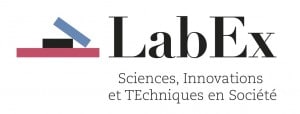@online{Mogoutov2012,
title = {The Digital Methods Initiative Summerschool 2012},
author = {Andrei Mogoutov and Jean-Philippe Cointet and Erik Borra and Michael Stevenson and Anne Helmond and Carolin Gerlitz and Richard Rogers and Natalia Sanchez and Tommaso Venturini and Marta Severo and Bernhard Rieder},
editor = {The Digital Methods Initiative (DMI)},
url = {https://digitalmethods.net/Dmi/Summerschool2012Presentations
https://digitalmethods.net/Dmi/Summerschool2012Schedule
https://digitalmethods.net/Dmi/Summerschool2012Workshops},
year = {2012},
date = {2012-07-02},
urldate = {2012-07-02},
abstract = {The Digital Methods Initiative Summerschool 2012 workshops
Crawling & Scraping
The workshop serves as an introduction to two classic digital methods techniques for issue mapping and analysis. A discussion of the Issue Crawler and the Lippmannian device is followed by a short exercise in which we'll study the presence of skeptics among top sources of information related to climate change.
Tracking the Trackers
In this short workshop you will learn how to map the cookie ecology related to a set of websites using the DMI Tracker Tracker tool and Gephi. The Tracker Tracker tool was conceived at the Digital Methods Winterschool 2012 in January. It is build on top of the anti-tracking plugin www.ghostery.com and allows to identify the invisible web, devices that track user activities online and the services associated to them. In order to prepare for this workshop we recommend reading the related projects and materials listed below. Please download and install Gephi athttps://gephi.org/ before the workshop starts so you can also learn how to visualize your results.
CorText: Open Platform for Heterogeneous Data Collection, Analysis and Visualization
IFRIS Digital Platform has developed a powerful web based software solution to address the needs of social scientists conducting empirical studies in the fields of Media Studies, Science and Technology Studies and Digital Humanities. The software platform CorText is an open online service for heterogeneous data analysis, modeling and visualization. The platform has the ambition to provide powerful data mash-up capacities transforming various data sources to structured analytical database. CorText platform offers a large spectrum of analytical tools integrating methods and approaches coming from Data Mining, computational linguistics, dynamical systems modeling, (post-)network analysis.
Query Design & List Building
How does one build a source set? How does one identify key words? How to query the source sets for the key words?
Actor-Network Textual Analysis (ANTA)
Having its roots in the laboratories studies movement, actor-network theory has always had in ethnography its privileged research method. Still, at least in the words of its founders, ANT has always longed for a more quantitative grasp of its objects. Until recently all the attempts to devise an integrated methodology for actor-network text analysis were frustrated by the scarcity of text to be analyzed. A part from scientific literature and media discourses it was difficult to find large amount of digitized text to investigate. In the last few years, this bottleneck has been spectacularly removed by the advent of electronic media and of digital traceability. The deluge of digitized texts made available online by all sort of actors (institutions, individuals, associations, media, activists, scientists…) calls for new tools of analysis at the same time more user-friendly and more powerful. ANTA or Actor-Network Analyzer is one of such tools. It has been developed at Sciences Po médialab to offer social researchers a simple text-analysis toolkit attuned with the theoretical tenets of actor-network theory.
Working with Networks: Analysis and Visualization (Gephi)
Network analysis has become a common technique for working with various types of data. Especially the gephi graph analysis toolkit has made the method significantly more accessible by providing a relatively easy to use interface for exploring and visualizing graphs. This tutorial will introduce a number of basic concepts from graph theory and explicate them by showing how gephi allows us to work with them.},
keywords = {},
pubstate = {published},
tppubtype = {online}
}






